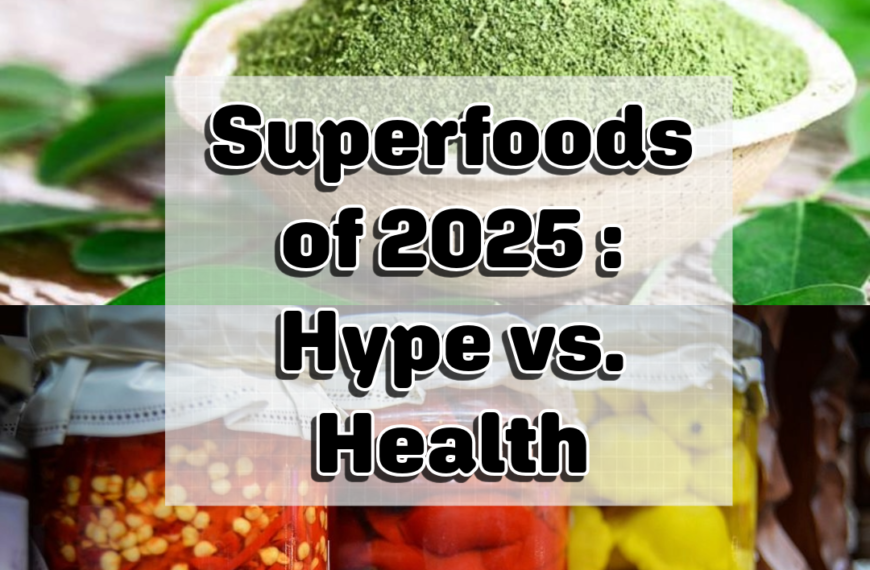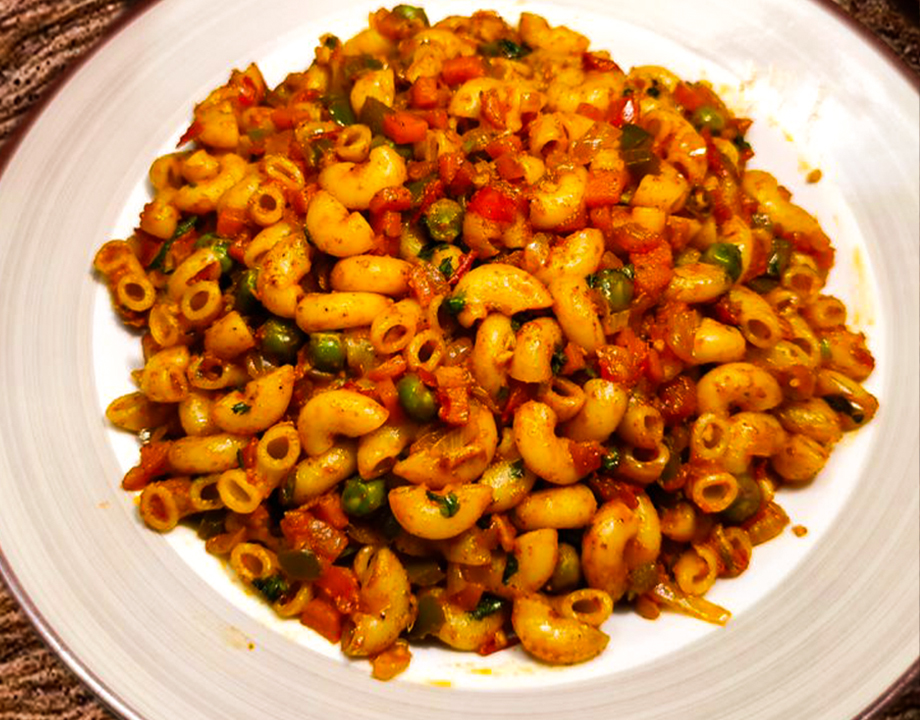In This Article

Fermented foods have seen a surge in popularity in recent years, thanks to their impressive health benefits and unique flavors. These foods undergo a natural process called fermentation, where beneficial microorganisms such as bacteria, yeast, or fungi convert sugars and starches into alcohol or acids. This process not only helps preserve the food but also enriches it with probiotics, enzymes, and vitamins that are highly beneficial for health.
One of the key advantages of consuming fermented foods is their positive impact on gut health. The probiotics present in these foods promote a healthy balance of gut bacteria, which is crucial for digestion, nutrient absorption, and a strong immune system. Foods like yogurt, kefir, sauerkraut, kimchi, and kombucha are particularly rich in live cultures that can support digestive health and reduce inflammation.
Moreover, fermentation often enhances the bioavailability of nutrients, making them easier for the body to absorb. Many fermented products are also rich in antioxidants and bioactive compounds that combat oxidative stress and support overall wellness. In addition to their health benefits, fermented foods are cherished for their tangy, complex flavors, adding depth to meals. By including these time-honored foods in your diet, you can enjoy both enhanced health and culinary delight.
The Role of Gut Health in Immunity
A healthy gut is not just essential for digestion; it’s the cornerstone of a robust immune system. The gut is home to trillions of microorganisms collectively known as the gut microbiota. These microorganisms, which include bacteria, viruses, fungi, and other microbes, coexist in a delicate balance that supports digestion, nutrient absorption, and the production of essential vitamins such as B12, K2, and short-chain fatty acids. Beyond these functions, the gut microbiota plays a pivotal role in modulating immune responses and protecting the body from harmful pathogens.
The gut is often referred to as the body’s “second brain” because of its close connection to the immune system and the nervous system. Nearly 70% of the body’s immune cells are located in the gut, where they interact with the microbiota to identify and neutralize threats. Beneficial bacteria in the gut help regulate the immune system by teaching it to distinguish between harmful invaders and the body’s own cells. This process reduces the risk of autoimmune disorders and chronic inflammation.
When the gut microbiota is in balance, it creates a protective barrier that prevents the infiltration of harmful bacteria and toxins. However, an imbalance in the gut microbiota, a condition known as dysbiosis, can disrupt this harmony. Dysbiosis may be caused by factors such as a poor diet, stress, antibiotics, or environmental toxins. This imbalance weakens the gut’s protective barrier, allowing harmful substances to enter the bloodstream and triggering an inflammatory response. Over time, chronic inflammation can impair the immune system, increasing susceptibility to illnesses like colds, the flu, or even more serious diseases such as diabetes and inflammatory bowel disease.
Maintaining gut health is crucial for supporting immunity. A diet rich in fiber, fermented foods, and probiotics can nurture beneficial bacteria, while reducing processed foods, sugar, and excessive alcohol intake can prevent dysbiosis. Regular exercise, stress management, and sufficient sleep also contribute to a healthy gut microbiome. By prioritizing gut health, we can strengthen our immune defenses and enhance overall well-being.
Immunity-Boosting Components in Fermented Foods

Fermented foods have been celebrated for centuries, not only for their unique flavors but also for their remarkable health benefits. One of the most significant advantages of fermented foods lies in their ability to bolster the immune system. Rich in probiotics, these foods support a balanced gut microbiota, which plays a pivotal role in maintaining immunity and overall health. Beyond probiotics, fermented foods also enhance the bioavailability of key nutrients, making them an essential component of an immunity-boosting diet.
Probiotics: The Immune System’s Allies
Probiotics are live beneficial bacteria found in fermented foods. These microorganisms, including well-studied strains such as Lactobacillus and Bifidobacterium, help restore and maintain the delicate balance of gut microbiota. A balanced gut microbiota is essential for a healthy immune system, as it strengthens the gut barrier, preventing harmful pathogens and toxins from entering the bloodstream. Probiotics also interact with immune cells, enhancing their ability to recognize and combat threats. Regular consumption of fermented foods such as yogurt, kefir, kimchi, sauerkraut, and miso can help increase the population of beneficial bacteria, supporting both gut and immune health.
Prebiotics: Fuel for Beneficial Bacteria
In addition to probiotics, some fermented foods act as prebiotics, providing nourishment for beneficial gut bacteria. Prebiotics are non-digestible fibers that serve as food for probiotics, promoting their growth and activity. This synergistic relationship further enhances gut health and, by extension, immune function. For example, fermented foods like tempeh and certain types of pickles often contain prebiotic compounds that support the microbiome.
Enhanced Nutrient Profiles: The Power of Fermentation
Fermentation not only preserves food but also enhances its nutrient profile, making vitamins, minerals, and antioxidants more bioavailable. Key immunity-boosting nutrients include:
- Vitamin B12 and K2: These vitamins, often present in higher concentrations in fermented foods, are essential for red blood cell formation and calcium regulation, which indirectly support immunity.
- Folate: Fermented foods such as kimchi and miso can be rich in folate, a critical nutrient for DNA synthesis and repair.
- Antioxidants: Fermentation can increase the levels of bioactive compounds, such as phenolic acids, which have antioxidant properties that help combat inflammation and oxidative stress, key factors in immune suppression.
Incorporating Fermented Foods
Including a variety of fermented foods in your diet is an effective way to strengthen the immune system. Aim to combine different types, such as dairy-based probiotics like yogurt, plant-based options like kimchi, and beverages like kombucha. These foods not only improve gut health but also provide a nutritional boost, contributing to a resilient immune system.
Best Fermented Foods for Immunity
Incorporating fermented foods into your diet can be a game-changer for boosting immunity. These foods are rich in probiotics, which are beneficial bacteria that support gut health. A healthy gut is essential for a robust immune system, as approximately 70% of the immune system resides in the gut. Additionally, fermented foods often contain vitamins, minerals, and enzymes that aid in overall well-being. Below, we explore some of the best fermented foods and their unique benefits.
- Yogurt: Yogurt is one of the most well-known fermented foods, celebrated for its creamy texture and probiotic content. Made by fermenting milk with live bacteria, it contains strains like Lactobacillus and Bifidobacterium, which promote a balanced gut microbiome. Yogurt is also a great source of calcium and protein, contributing to bone health. To maximize its benefits, opt for plain, unsweetened yogurt with live active cultures.
- Kefir: Similar to yogurt but with a thinner consistency, kefir is a fermented milk drink teeming with probiotics. It boasts a wider range of bacterial and yeast strains compared to yogurt, making it a powerful ally for gut health. Rich in vitamins B12, D, and K2, kefir also supports energy production and bone strength. It’s versatile and can be enjoyed on its own or blended into smoothies.
- Kimchi: Kimchi is a staple in Korean cuisine, made from fermented vegetables like napa cabbage and radishes, seasoned with chili pepper, garlic, and ginger. This spicy dish is a powerhouse of probiotics, antioxidants, and fiber. Its fermentation process produces beneficial lactic acid bacteria that enhance digestion and strengthen the immune system. The inclusion of garlic and ginger adds antimicrobial and anti-inflammatory properties, making kimchi a must-have for immune support.
- Sauerkraut: Sauerkraut, or fermented cabbage, is another excellent source of probiotics. Rich in fiber, it aids digestion and helps maintain gut health. It’s also packed with vitamins C and K, iron, and manganese, which are essential for immune function and cellular repair. Look for unpasteurized sauerkraut, as pasteurization can kill beneficial bacteria.
- Miso: Miso is a traditional Japanese seasoning made from fermented soybeans, rice, or barley. It’s commonly used in soups, dressings, and marinades. Miso is rich in probiotics, enzymes, and essential amino acids. Additionally, it contains antioxidants that combat free radicals, supporting overall health and longevity.
- Tempeh: A fermented soybean product originating from Indonesia, tempeh is an excellent plant-based protein source. Its fermentation process enhances its digestibility and creates natural probiotics. Tempeh also contains prebiotics, which feed the good bacteria in your gut, amplifying its immune-boosting effects.
- Pickles: Naturally fermented pickles, made without vinegar, are an underrated gem for gut health. These tangy treats are packed with probiotics that promote a healthy gut lining and immune resilience. However, ensure you choose pickles labeled “naturally fermented” for maximum benefits.
Incorporating these fermented foods into your diet can significantly enhance your immunity, support digestion, and improve overall health. Start with small portions and gradually increase your intake to allow your gut to adjust.
Incorporating Fermented Foods into Your Diet
Adding fermented foods to your meals doesn’t have to be complicated or time-consuming. These nutrient-rich and probiotic-packed foods can be seamlessly integrated into your daily routine, enhancing your gut health and overall immunity. Here are some simple and creative ways to include them in your diet.
Start Your Day with Yogurt
A bowl of yogurt is a fantastic way to begin your day. For added nutrients and flavor, top it with fresh fruits like berries or bananas, and sprinkle chia seeds, flaxseeds, or nuts for a satisfying crunch. Yogurt can also serve as a base for smoothies. Simply blend it with frozen fruits, a splash of almond milk, and a drizzle of honey for a delicious and probiotic-rich breakfast.
Enjoy Sauerkraut or Kimchi as a Side Dish
Both sauerkraut and kimchi make excellent accompaniments to meals. Their tangy and spicy flavors complement a wide range of dishes. Serve sauerkraut alongside grilled meats or roasted vegetables to add a burst of flavor and probiotics. Kimchi pairs beautifully with rice bowls, stir-fries, or noodle dishes, enhancing both taste and nutritional value.
Add Miso Paste to Soups or Sauces
Miso paste is incredibly versatile and easy to incorporate into your cooking. Add a spoonful to hot water for a quick and nourishing miso soup. For a savory twist, mix miso paste into marinades, dressings, or sauces. Its rich umami flavor works well in salad dressings, stir-fry sauces, or as a glaze for roasted vegetables or fish.
Snack on Fermented Foods
Swap your usual snacks for healthier fermented alternatives. Instead of reaching for chips or cookies, sip on a glass of kefir or enjoy a serving of tempeh slices. Kefir is an excellent probiotic drink that can be flavored with a touch of honey or blended with fruits for a refreshing treat. Tempeh, a fermented soybean product, can be marinated, grilled, or sautéed for a quick, high-protein snack.
Incorporate Pickles in Your Meals
Naturally fermented pickles can add a zesty kick to your meals. Include them in sandwiches, wraps, or burgers for extra flavor and crunch. They’re also a great addition to charcuterie boards or as a garnish for salads. Be sure to choose pickles labeled “naturally fermented” to ensure they contain live probiotics.
Experiment and Mix Things Up
Don’t hesitate to experiment with new fermented foods or recipes. Consider adding a splash of kombucha to smoothies, using tempeh in tacos, or making fermented vegetable wraps for lunch. Start small and gradually increase your intake to allow your body to adjust.
Incorporating fermented foods into your diet not only supports your gut health but also enhances the flavors and textures of your meals, making them more enjoyable and nutritious.
Precautions and Who Should Be Cautious About Fermented Foods
Fermented foods are a great addition to most diets due to their probiotics, vitamins, and digestive benefits. However, they may not suit everyone and could cause adverse effects in certain situations. It’s essential to understand the potential risks and who should approach these foods with caution. Below are detailed considerations for individuals with specific sensitivities, medical conditions, and dietary restrictions.
Histamine Sensitivity
Fermentation naturally produces histamines, which are compounds involved in immune responses and gut regulation. For individuals with histamine intolerance, consuming foods like kimchi, sauerkraut, or aged cheeses can lead to reactions such as:
- Headaches
- Nasal congestion
- Skin rashes
- Digestive discomfort
- Flushing or swelling
If you suspect histamine intolerance, start with low-histamine options such as fresh yogurt or kefir and avoid foods like aged tempeh or vinegar-based pickles. Testing for histamine sensitivity and consulting with an allergist or nutritionist can also provide tailored guidance.
Underlying Medical Conditions
Certain medical conditions require a cautious approach when consuming fermented foods:
- Compromised Immune Systems: People with weakened immune systems, such as those undergoing chemotherapy, organ transplant recipients, or individuals with HIV/AIDS, may be at higher risk of infection from the live bacteria in fermented foods.
- Gastrointestinal Disorders: Conditions like Crohn’s disease, ulcerative colitis, irritable bowel syndrome (IBS), or small intestinal bacterial overgrowth (SIBO) can sometimes worsen with the introduction of probiotics. Fermented foods can stimulate bacterial activity that might exacerbate symptoms such as bloating, pain, or diarrhea. Consulting a gastroenterologist before adding fermented foods is recommended.
Dietary Restrictions
Fermented foods vary widely in their preparation, and some may not align with specific dietary needs:
- High Sodium Levels: Sauerkraut, kimchi, and pickles are often preserved with significant amounts of salt. Excess sodium can contribute to high blood pressure, water retention, and kidney strain. People following a low-sodium diet should check product labels and opt for low-salt versions or rinse fermented products before consumption.
- Added Sugars: Sweetened versions of fermented foods, such as flavored yogurts or kefir, may contain high amounts of sugar. Excess sugar intake can lead to blood sugar spikes, weight gain, and other metabolic issues, particularly for individuals with diabetes or insulin resistance.
- Trace Alcohol Content: Some fermented products like kombucha or certain traditional fermented drinks may contain small amounts of alcohol. While typically minimal, this can be a concern for individuals avoiding alcohol for health, personal, or religious reasons.
Pregnancy and Breastfeeding
While fermented foods like yogurt and pasteurized kefir are generally safe during pregnancy and breastfeeding, homemade or unpasteurized products can carry a risk of contamination with harmful bacteria. To minimize risk:
- Opt for store-bought products from reputable brands.
- Avoid fermented foods with high levels of salt or unverified fermentation processes.
- Discuss with a healthcare provider to ensure suitability for your diet.
Introducing Fermented Foods Gradually
Even for individuals without underlying conditions, consuming large amounts of fermented foods suddenly can overwhelm the digestive system. Common symptoms include bloating, gas, or mild stomach discomfort, as the gut microbiome adjusts to the influx of live bacteria. To avoid these issues:
- Start with small servings, such as a tablespoon of sauerkraut or half a cup of yogurt.
- Gradually increase your intake over weeks to allow your digestive system to adapt.
- Pair fermented foods with fiber-rich meals to support balanced digestion.
Allergies and Food Intolerances
Fermented foods may also contain allergens or irritants depending on the base ingredient. For instance:
- Soy-based foods like miso and tempeh are unsuitable for individuals with soy allergies.
- Dairy-based products like yogurt and kefir may cause reactions in those with lactose intolerance or milk protein allergies. Look for dairy-free or lactose-free alternatives when necessary.
Homemade Fermented Foods
Making fermented foods at home can be a rewarding experience, but improper preparation can lead to contamination by harmful bacteria or molds. To ensure safety:
- Follow trusted recipes and hygiene practices.
- Use sterilized equipment and fresh ingredients.
- Monitor fermentation conditions such as temperature and duration closely.
Consultation with Professionals
If you’re introducing fermented foods for health purposes, consulting a healthcare provider or dietitian is wise, especially if you have pre-existing conditions or dietary restrictions. They can guide you in selecting the right foods and quantities to safely enjoy their benefits.
While fermented foods are a nutritious and flavorful addition to most diets, understanding your body’s unique needs and any potential risks is key to maximizing their health benefits safely.
Conclusion: A Simple Step Toward Better Health
Incorporating fermented foods into your daily diet is a simple yet powerful step toward better health. These foods, rich in probiotics and essential nutrients, play a crucial role in improving gut health, boosting immunity, and enhancing overall well-being. By promoting a balanced gut microbiome, fermented foods can support digestion, reduce inflammation, and even influence mood positively.
The variety of fermented foods available ensures there’s something for everyone, from tangy yogurt and kefir to savory kimchi and miso. Their unique flavors and versatility make them easy to integrate into meals or enjoy as snacks. If you’re new to fermented foods, start small and introduce them gradually to find what works best for your taste and dietary needs.
Making this change is a small investment in your health with significant rewards. So, explore, savor, and reap the numerous benefits fermented foods have to offer—your body will thank you!
















